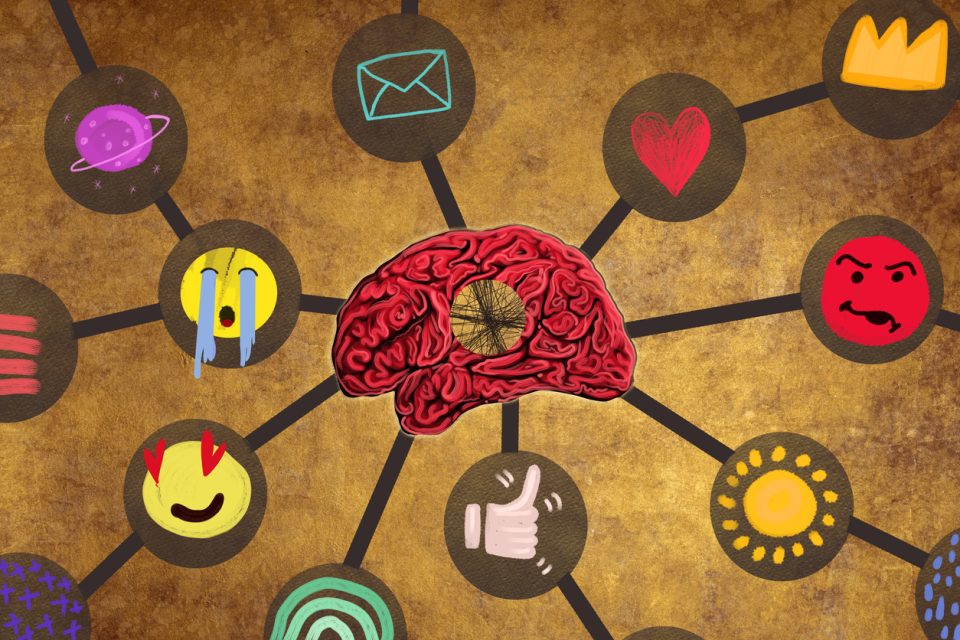By Alicia Thompson | Senior Staff Writer
This summer Pixar’s sequel Inside Out 2 became the highest grossing animated movie ever. If you haven’t seen the films, the premise is that the personified versions of a young girl’s emotions—including fear, anxiety, envy, joy, sadness, disgust, embarrassment, ennui, and anger—each compete for influence as she navigates life. The films are touching and great for families to watch together, yet belief that our emotions are in charge may prevent us from developing the emotional intelligence to control our own feelings and how they affect our behavior.
Certified Creative Performance Coach Richard Mover tackles the challenges and benefits of emotional intelligence through his “Performance Transformance” programs. Mover taps into his experiences as an actor, playwright, producer, and director to encourage people to reflect on their own lives and values to evaluate how they can better connect with themselves and others. Emotional intelligence, or EI as Mover refers to it, is “all about connection,” he says, and one of the primary goals is to help people “reflect and correct.” Mover even ends his presentations with a rap poem to drive home the point with the chorus: “Trial, error, reflection, correction.”
Performance Coach Richard Mover taps into his experiences as an actor, playwright, producer, and director to encourage people to reflect on their own lives and values to evaluate how they can better connect with themselves and others.
Mover defines EI as “Having the capacity to be aware of and the ability to control the expression of one’s emotions, and to handle interpersonal relationships judiciously and empathetically,” Moreover, he describes learning how to “respond” thoughtfully to a situation versus an emotional knee-jerk “reaction.” He admits it’s sometimes hard to pinpoint exactly what that intangible quality is that makes someone so good at navigating those complexities. You know it when you see it, or more importantly, experience it.
“EI is both how you act and react,” Mover suggests, but it starts by looking inward. “You can’t give what you don’t have,” he points out, “so you’ve got to work on yourself first.” That self-reflection can give you perspective to help you adjust the way you respond to situations. He encourages participants to use his “Awareness, Intention, Accountability” model and believes that if someone works hard to address their behavior eventually that conscious effort becomes subconscious, but if you continue to justify your behavior, you cannot evolve.
Emotional Intelligence Network recently posted “8 Ways to Display your Emotional Intelligence,” a graphic by CEO Justin Wright which gives some tangible action items to address EI. Being aware of these actions helps individuals see how they can also address Mover’s steps to act with intention and, ultimately to be accountable for their own behavior. They are to 1) Lift others up 2) Say “thank you” 3) Own your mistakes 4) Ask before assuming 5) Pause before reacting 6) Assume good intent 7) Keep your promises, and 8) Show empathy.
Every individual has their own goals to address in their quest to improve their emotional intelligence, but there are some general principles. Mover stresses the importance of being collaborative and gracious, persevering through failure, staying passionate about what you’re good at, and embracing uncertainty by realizing you’ve tackled challenges before. It requires thinking about yourself and others. He believes, “We need to get back to the idea of nurturing each other.” Mover also maintains that we should “stop being the devil’s advocate and be our own.”
“Emotional intelligence is humble, never seeking to impress; instead it’s always on an inherent quest to bless by providing hope, understanding, and patience at every turn.”
Richard Mover, Performance Coach
Mover, as an actor, emphasizes how the principle of the “magic if” applies in the field of emotional intelligence. The principle encourages actors to explore how they would react if they were in their character’s situation. It helps them to imagine and embody the character’s emotions and decisions more authentically. In much the same way, EI allows us to consider all of the nuances at our disposal in how we choose to connect and communicate. That is what makes us uniquely human, but keeping the values of EI at heart carries over into the way we see ourselves and the way others see us. Mover says, “Emotional intelligence is humble, never seeking to impress; instead it’s always on an inherent quest to bless by providing hope, understanding, and patience at every turn.” Just imagine how “magical” it would be “if” everyone could strive for just that.
ABOUT RICHARD MOVER
Richard Mover is a multi-faceted talent in the heart of NYC, a renowned actor, director, playwright, and certified creative performance coach. With his coaching practice Performance Transformance he offers personalized one-on-one and group coaching sessions. Mover’s passion for transformation extends to hosting the “Transformational Speakers Gym” and providing training in emotional intelligence through his “Emotional Intelligence Toolkit Training.”
For more information or a complimentary consultation, go to https://www.performancetransformance.com.
To discuss booking Mr. Mover for personal or corporate training or a speaking engagement, email Paige Jackson, Marketing Assistant, SLP & Company, LLC at paige.glfmag@gmail.com.



